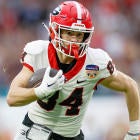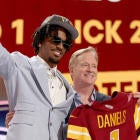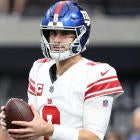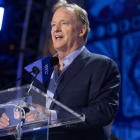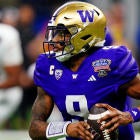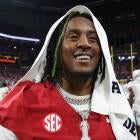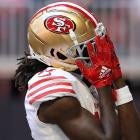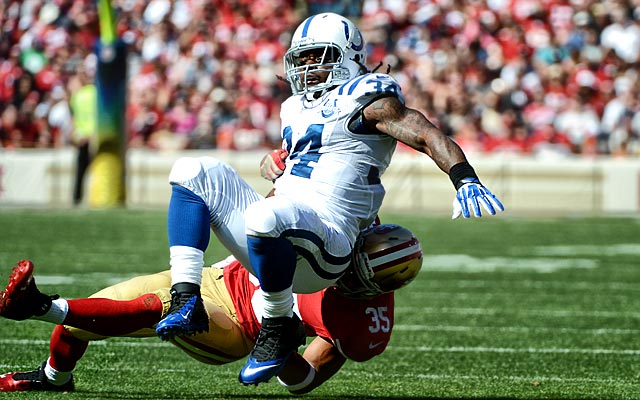
Coach Killers is your weekly look around the league at those performances, decisions and "Wait, what did he just do?!" moments that put the guy in charge squarely on the ol' hot seat. Questions, comments, casserole ideas? Hit us up on Twitter at @ryanwilson_07.
Trent Richardson, RB - Colts
We almost never feature players or coaches from winning teams in Coach Killers, but we're making an exception this week. And just to be clear: We're not saying an ineffective Trent Richardson dooms the Colts' season, just that the team will miss that 2014 first-round pick they gave up to get him.
Colts general manager Ryan Grigson isn't afraid to take chances. Drafting Andrew Luck was probably the easiest decision he's made since taking over for Bill Polian following the 2011 season. But he also took tight ends Coby Fleener and Dwayne Allen in the second and third rounds after Luck, even though the team had bigger, more immediate needs.
When asked about the decision the next day, Grigson offered up these two words: "Best players."
That would probably be his explanation for the Colts' busy offseason, too. They signed right tackle Gosder Cherilus (5-year, $34 million, $15.5M guaranteed) to bolster a mediocre offensive line, and linebacker Erik Walden (4-year, $16 million, $8M guaranteed) and safety LaRon Landry (4-year, $24 million, $7M signing bonus) to improve the defense.
At the time, all three moves raised eyebrows because of the big contracts attached to them. But once again, Grigson proves that he knows what he's doing. The Colts are 5-2, and have the NFL's fifth-best team (No. 5 offense, No. 18 defense), according to FootballOutsiders.com's advanced metrics.
With all that success in such a short period, it's hard to question Grigson's judgment. Which brings us to running back Trent Richardson. It's been five weeks since the Browns sent Richardson to Indy in exchange for the Colts' 2014 first-round pick. And maybe, eventually, things will work out.
So far, however, it hasn't.
Yes, we know, Richardson's been in Indy for barely a month. As he learns the offense and gets acclimated to a new system he'll look more like the player we saw in Cleveland last year … except Richardson wasn't particularly effective then, either.
As a rookie in 2012, Richardson rushed 267 times for 950 yards for a pedestrian 3.6 yards per carry. He did score 11 touchdowns, which can't be discounted. Still, by the end of the season, he ranked 37th among all NFL running backs in total value.
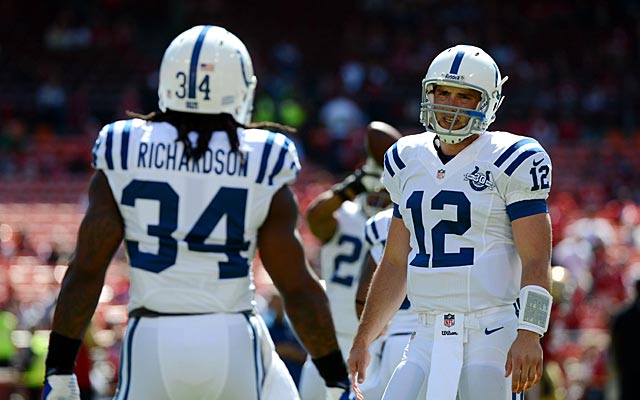
You might try to argue that the Browns are horrible and that had something to do with Richardson's lack of production. That's fair -- the offensive line was 21st in run-blocking in 2012. And maybe you'll point out that quarterback Brandon Weeden scared exactly no one with his passing ability, which meant that Richardson often faced eight-man defensive fronts.
Turns out, that's not true. According to ProFootballFocus.com, Richardson saw eight men in the box 18 percent of the time, which ranked 25th out of 42 running backs.
But this is sort of the point: If a team is going to spend a first-round pick on a running back -- and the Browns traded up to No. 3 to get Richardson -- he better be transcendent. We're talking Jim Brown, Barry Sanders and Adrian Peterson-type talent.
Research by FootballOutsiders.com suggests that rushing success is more dependent on the offensive line, but pass protection is more dependent on the quarterback. Put differently: Teams can find productive running backs -- no matter when they were drafted (or if they were drafted at all) or how much they're making -- if a good offensive line is already in place. A great quarterback, however, can mask an O-line's shortcomings.
A great running back, in general, is wasted on a mediocre offensive line.
The takeaway:
1) Richardson, who hasn't magically improved with the Colts, remains far from great. He's rushed for 228 yards on 75 carries for a 3.0 yards per carry.
2) Indy's O-line is mediocre (they rank 14th in run-blocking, according to PFF).
ProFootballFocus.com's Sam Monson has an explanation for Richardson's poor showing in Sunday night's win over the Broncos.
"[Other than a lost fumble] Richardson was dealt the blocking equivalent of the Dead Man’s Hand, meeting players in the backfield on seemingly every carry, and barely getting an opportunity all day to run the ball without having to make a cut in the backfield as the play had been blown to hell. Richardson forced five missed tackles, and gained 25 of his 37 yards after contact. That means that on 14 carries his blocking generated him just 12 yards before he was hit."
Then Monson added, "The same [was] true for [Donald] Brown, who gained 12 of his 23 yards after contact."
Which only reinforces what we wrote earlier: Great running backs typically don't overcome average offensive lines.
We understand why Grigson made the deal for Richardson. The running game improves, play-action improves, the offense opens up and Luck is the beneficiary. There's a lot to like. Unfortunately, the theory doesn't match reality.
There's also this: The Colts running game wasn't in need of fixing. Yes, Vick Ballard was lost for the season, and Ahmad Bradshaw lasted just three games. But through the first three weeks, Indianapolis had the league's second-ranked rushing attack, according to FO, behind the Eagles.
Obviously, losing Ballard and Bradshaw necessitated some roster moves. It just shouldn't have been for a Colts' first-rounder. A pick, by the way, the team really could have used next April on a run-blocking interior lineman.
Ed Reed, S - Texans
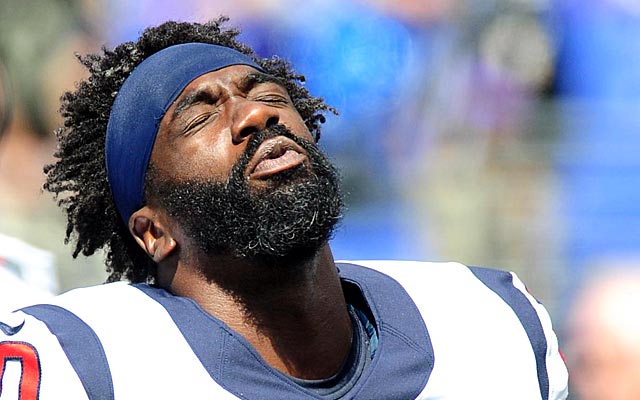
We like to joke that Ed Reed looks like Aunt Esther's husband, Woody. But maybe that's really who's lining up in the Texans' secondary because it would explain a lot.
Through five games, Reed has been among the worst safeties in the league, ranking 74th out of 85 players, per PFF.
This offseason, Houston let Glover Quin walk and the Lions signed him to a five-year, $23.5 million contract. Quin is currently the 13th-best safety in the league. Reed, meanwhile, inked a three-year, $15 million deal, and he likely won't be back in 2014.
Houston was smart to draft safety D.J. Swearinger in the second round of last April's draft, but is broke-down Reed a better bargain at $15 million than a playmaking Quin at $23.5 million?
Yes, we know, hindsight and all that. But it's not like people weren't screaming this offseason that the Ed Reed we saw with the Ravens was a fading memory.
Best-case scenario: Reed and his platinum walker shuffle into retirement and we'll all pretend like the Texans weren't reading from Dan Snyder's late-'90s manifesto "How to Build a Super Bowl Roster While Wasting Millions."
Josh Freeman, QB - Vikings
It's wholly unfair to put all the blame on what passed for the Vikings' offense Monday night on Josh Freeman. He's been with the team for a couple weeks, and as became blindingly obvious early in his debut against the Giants, he didn't know the playbook. Freeman was also wildly inaccurate which, again, may have had something to do with not knowing the playbook.
Freeman's passing last night: FIFTEEN overthrown passes! pic.twitter.com/YyBVWr31ac
— Sam Monson (@PFF_Sam) October 22, 2013
By the time it was over, Freeman completed 20 of 53 passes for 190 yards (0 TDs, 1 INT).
“It’s frustrating,” he said after the game. “It’s disappointing. But at the same time I see areas that are manageable in terms of us definitely getting better. We’re going to develop that chemistry. A lot of these plays that are just a hair off, they’ll start hitting for us.”
For some perspective on just how bad a performance that was, consider this:
Per @pfref game finder, since 1960 8 QBs had 50+ Att w/ <40% cmp%: Namath, JTrudeau, Brodie, Plunkett, KCollins, EManning, Blanda, DWood
— Brian McIntyre (@brian_mcintyre) October 22, 2013
So, clearly, Freeman doesn't solve the Vikings' never-ending quarterback problems, at least not yet.
It's too early to proclaim that this experiment is a bust, but the organization is probably moving ahead with plans to draft their next franchise quarterback with what's sure to be a top-10 pick in next April's draft.
And no matter how poorly Freeman plays over the next two-plus months, the Christian Ponder era in Minnesota is almost certainly over, too.
If nothing else, credit the team for conceding they made a mistake when they drafted Ponder in the first round back in 2011. As for the future, the Vikings should think about a trade deadline fire sale. They're 1-5 and in desperate need of draft picks for the impending rebuilding process.
I'll say this again, if hapless Vikes don't explore how high a pick they could get for Jarred Allen, and shed $7M of salary, they're silly
— Jason La Canfora (@JasonLaCanfora) October 22, 2013













